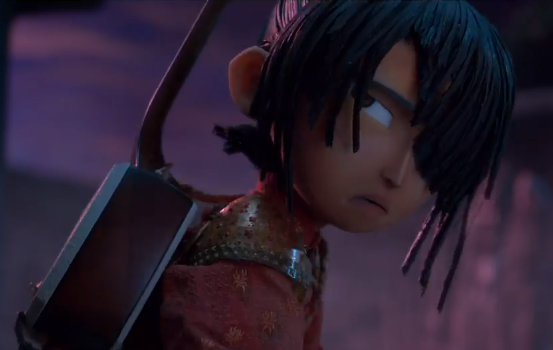Kubu and Belonging
If you haven’t seen the film, “Kubu and the 2 Strings”, this post contains a lot of spoilers.
If you haven't seen the film, go see it. It moved me to tears, and I’m confident it will affect you similarly. I've been teaching emotionally resonant storytelling to leaders for seven years now, and I recognize the time-tested growth journey that the main hero, Kubu, experiences.
“Kubu and the 2 Strings” is a stop-motion animation film that tells the story of a boy who goes on a classic hero's journey in mythical Japan.
The film reminded me that in many of our favorite epic stories, the heroes begin by wondering about where they belong. Their epic journeys test them physically, mentally, and spiritually. A great many lessons are learned through these challenges.
After overcoming many challenges, they discover that they belong at home where they started. But they newly understand the place, the relationships there, and the way they can serve that community in a new way.
In the first act of “Kubu and the 2 Strings”, our hero doesn't think he fits into his home village. He must get home before sundown each evening and cannot participate in the ritual festivities that go on in the night. Villagers love his performance art stories in the town square, but he can never deliver story endings. They berate him for it.
Sure enough, the first time that he is out after sunset to participate in the lantern ceremony, he discovers he is being hunted by mythical beings. These beings destroy the village and harm the villagers in their pursuit of Kubu. He escapes only through the intervention of his mother and her previously hidden magic. We learn that clearly, Kubu isn't like the rest of the village.
When he wakes up after the ordeal, he discovers a magical monkey (elder) who serves as his protector and instructs him to seek out the magical armor (tokens) he needs to protect himself. On the journey, he also teams up with a man who has been cursed into the form of a giant beetle. The three characters overcome deadly traps in order to collect the armor. Along the way, the monkey and the beetle are both killed, but only after Kubu learns that they were his real parents in a new magical form. He discovers he was in fact already with his family, and neither he nor we knew it.
Kubu alone is left to face the moon king who hunts him. Their final showdown is in the village that Kubu left in the first act. He struggles to win the battle with the gold armor, but after a moment of insight, he puts the armor away and picks up the magical instrument his mother bequeathed to him. He understands that his role is to protect all the villagers, not just himself, and to grow compassion within his enemy, so the fight is no longer worth fighting.
Kubu’s story is a journey to discover his place, protecting the village as they welcomed, encouraged, and supported him for so many years. Another way to say the same thing is that our hero discovered that he belongs where he originally was. He just needed to know how to create that sense of belonging for himself and others. He does this by seeing their relationship to him and stepping up to protect them. They are a community that belongs to one another.
In classic epic journeys and in our own lives, learning how to belong typically includes learning to see that others help us to be the person we want to be. We help neighbors become what they want to be. We all share mutual concern for the welfare of one another and we learn how to serve one another. No matter how big the adventures or how dangerous the challenges, belonging is where we know others care about us and we care about them. That situation may be true from the very beginning, but if it is not recognized, we don't feel the belonging.
The true hero discovers that she belongs where she started, and she knows how to create that for others. The world is waiting for more heroes.

